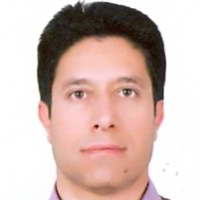Detaining of Indonesian Shiites to Participation in the Process and Structure of the Political Power
Author(s):
Article Type:
Research/Original Article (دارای رتبه معتبر)
Abstract:
Indonesia is one of the Muslim countries in Southeast Asia, making significant economic and political progress in recent decades. Today, this progress in the political arena is seen as the activities of various groups in the form of political parties and factions in this country's decision-making process. The main question here is, "Why have Indonesian Shiites failed to change their socio-political position and failed to find a suitable political role and position in the country?" To answer the question, based on the combination of the two theories of political mobilization and the structure of political opportunity, it can be stated that "The five components of a dispersed population, along with the weak economic strength of the Shiite people, fragmented and non-political leaders, the prevailing ideology and obstruction of the political system, the dysfunctional organization and the lack of access to influential allies and the political non-use of media opportunities had played an essential role in this situation. The findings also show that Indonesia's Shiite population does not have the necessary geographical cohesion, organizations with a synergistic and mobilizing approach, dynamic and practical ideology, and leaders with socio-political concerns. Therefore, the Shiites of this country have been deprived of the process of participation in power. In this paper, the descriptive-analytical method and library method have been used to collect and analyze data.
Keywords:
Language:
Persian
Published:
Iranian Research Letter of International Politics, Volume:8 Issue: 2, 2020
Pages:
27 to 58
https://magiran.com/p2227390
سامانه نویسندگان
مقالات دیگری از این نویسنده (گان)
-
U.S. decline, China's rise, technology, soft power, economy, artificial intelligence
*
Journal of American Strategic Studies, -
Imam Khomeini's (RA) Speech Acts on the Palestine Issue
Mohammad Mojahedzadeh *, Mojtaba Shariati, , Reza Rezaei
Journal of Political sociology of Islamic world,



